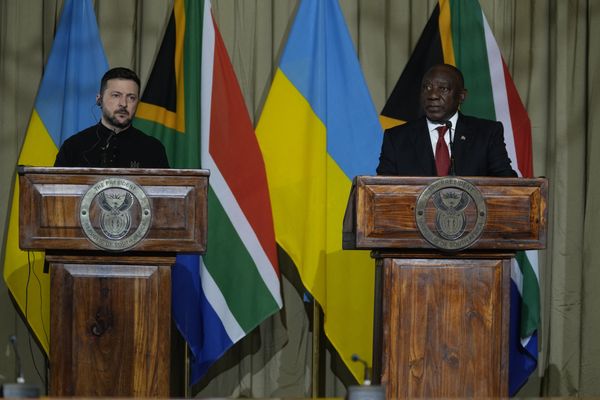
“Bharat ke khilaaf syrup waali saazish,” announced the headline on India News during a morning segment and panel discussion over a recent global alert – issued after 66 deaths allegedly linked to four India-made cough syrups in Gambia.
On Wednesday, the World Health Organisation said the laboratory analysis of samples of each of the four products by Haryana-based Maiden Pharmaceuticals Limited “confirms that they contain unacceptable amounts of diethylene glycol and ethylene glycol as contaminants”. However, the warning came as a shock to authorities in India, where a third of the world’s medicines are manufactured. The Central Drugs Standard Control Organisation has taken up the matter with authorities in Haryana and sought further details from the WHO.
Several media reports have earlier questioned the role of the manufacturer and pointed out that it has been a repeat offender. According to the extended licensing, laboratory and legal node database maintained by the centre, the Kerala and Gujarat governments earlier warned of the company’s practices. The Wire reported that the company also lied about being WHO-certified on its website.
However, for India News, the bulletin on Friday was rather syrupy, missing out any such detail about the manufacturer even as the tickers and the anchor, Rachna Bansal, warned viewers of a conspiracy against India by the WHO or the international drug mafia.
The tickers coughed up visceral electrosmog: “Syrup waala shadyantra, aaj India News karega khand khand”, “Desh ka buland hai swabhimaan, saazish nahin sahega hindustan”, “WHO ne nahin ki jaanch, toh kaise liya desh ka naam?” and “Corono se duniya ko bachaya, Bharat ke khilaaf kaun aaya?”
Bansal kept questioning how the WHO made such comments against the medicines made in India “without any analysis or conclusion”. She also said the global health body is now under cloud as it issued the alert “in haste”, especially considering the role of drug regulators in Gambia.
The Indian government has specified that the drug was only meant for export and did not exist in domestic markets. Further, protocol mandates that it should be tested by the receiving country, but an NDTV report said it remains unclear whether Gambian authorities undertook this step.
Meanwhile, the incident has raised questions over the government’s drug control policy too. In a thread on Twitter, public health activist Dinesh S Thakur pointed to the Haryana company’s shoddy track record and asked how it was certified by the CDSCO.
However, the India News anchor and the eventual panel discussion harped on how the WHO had hastily arrived at such a decision and that the state and central authorities have flung into action to prove such claims wrong or take strict action if necessary.
As Bansal asked the channel’s reporter, Vipin Parmar, why the WHO “rushed” to make such a statement without any mention of investigation, the latter replied that a report has been sought from the global health body but it must be pointed out that Haryana is a hub of drug manufacturing in the country and it is “very important” to give a “befitting response” to such allegations.
Dr PS Venkatesh Rao, a Bengaluru-based endocrinologist, said the role of the Gambian government is also questionable given that it has “no” testing capacity – Gambia health services director Mustapha Bittay had earlier told the BBC that country was in discussions with the World Bank to get funding for a quality control lab. Rao also said the medicine manufacturing chain must be checked to ascertain whether the “adulterants” – diethylene glycol and ethylene glycol – contaminated the drug. Rao said Chinese drugs have earlier been sold as Indian drugs in Africa before.
“Isiliye ye shak gehra raha hai ki WHO ki taraf se ye jaldbaazi mein bayaan kyun diya gaya. Bharat ki taraf saazish ki bu ismein nazar aati hai,” noted the anchor, adding that strict action, nevertheless, will be taken in the matter.
Newslaundry is a reader-supported, ad-free, independent news outlet based out of New Delhi. Support their journalism, here.







